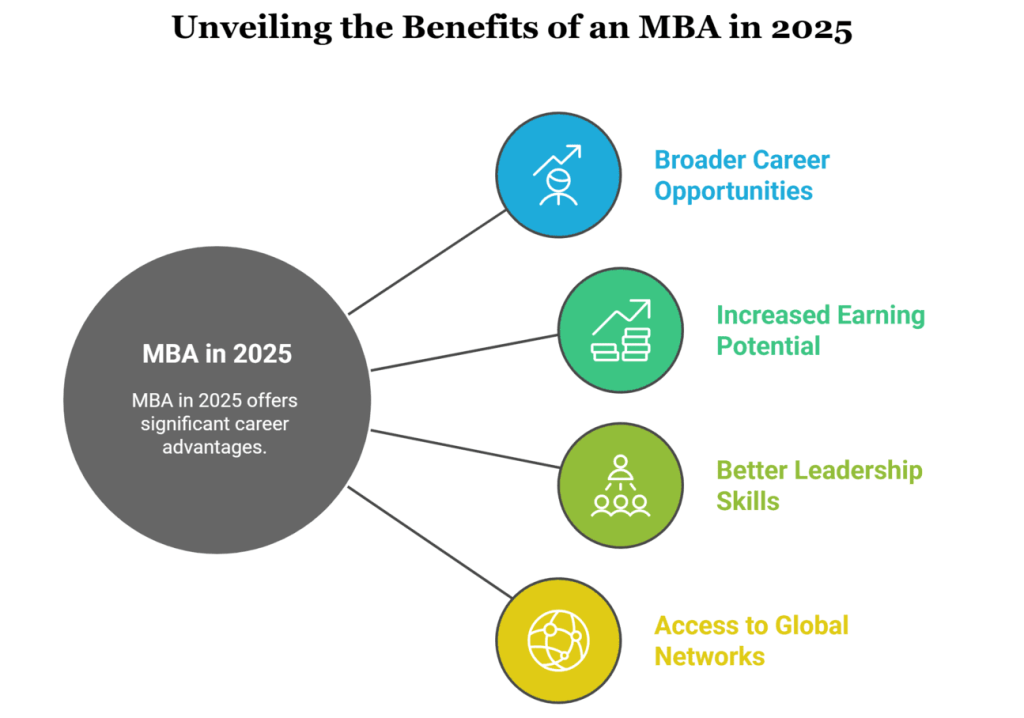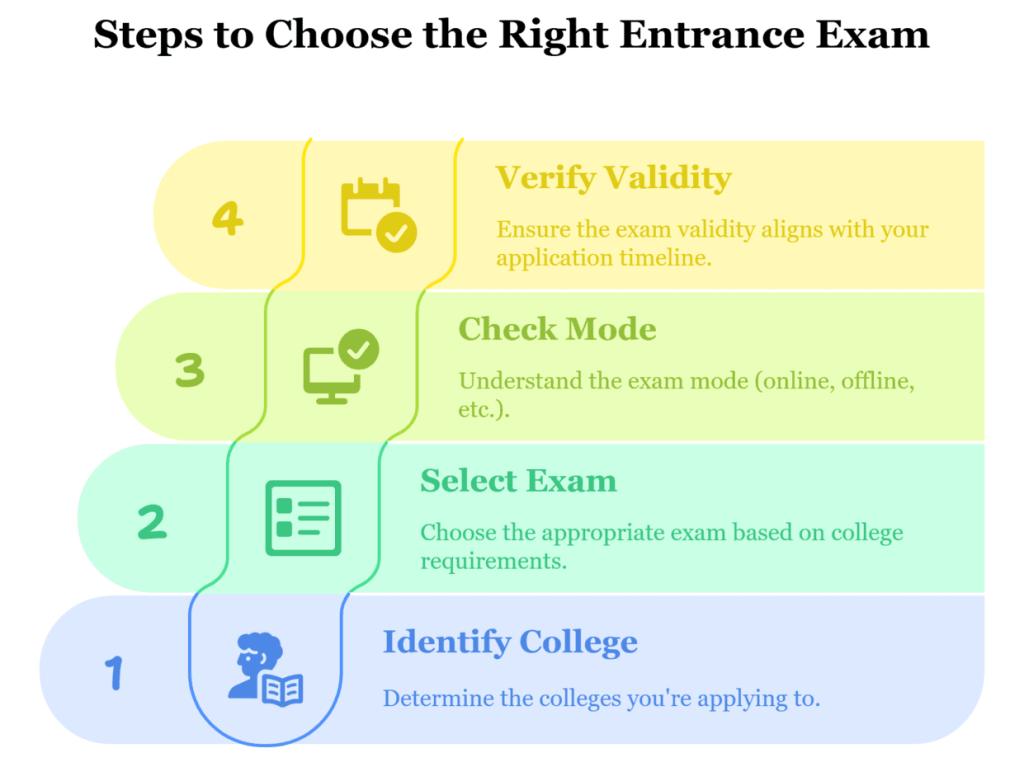
How to Get Admission in MBA: Step-by-Step Process for 2025
The demand for MBA graduates is still up. As MBA applications open in India and abroad, students start preparing for the last date of MBA admission in 2025. Whether just out of college or work and looking to upgrade oneself, one needs to understand the MBA admission process, MBA admission eligibility criteria, critical last dates, and all other requirements for admission to an MBA.
This guide covers everything you need to know to make an informed decision about MBA admission this year, including tips on selecting the right program and MBA admissions consultants.
It is valued, and in turn, it increases your value in any organization.
Table Of Content
Why MBA in 2025?
MBA Admission Process: Step-by-Step Guide
Top Tips to Crack the MBA Admission Process in 2025
Make Informed Career Moves with Jaro Education's Counselling Services
Frequently Asked Questions
Why MBA in 2025?
The global business landscape is constantly evolving, and with the rise of digital transformation, artificial intelligence, and data analytics, the demand for qualified management professionals is higher than ever. An MBA degree in 2025 offers:

- Broader career opportunities across industries
- Increased earning potential
- Better leadership and strategic thinking skills
- Access to global networks and alumni connections
Whether a fresh graduate or a working professional, MBA admission in 2025 can be your gateway to long-term career growth.
MBA Admission Process: Step-by-Step Guide
Understanding the MBA admission process helps streamline your application journey:
1. Step 1: Research & Shortlisting
The first and utmost pivotal step in the MBA admission process is thorough exploration and shortlisting of B-schools. With hundreds of management institutes across India and abroad, finding the right fit requires a strategic approach.
Factors to Consider While Shortlisting B-Schools
- Ranking & Reputation
Consider business schools with consistently high rankings in both national (NIRF, Business Today) and international (QS, FT) evaluations. A strong reputation is vital in influencing employer perception and the strength of the alumni network.
- Course Structure & Specializations
Evaluate the curriculum to ensure alignment with your career goals. Some schools excel in Finance, others in Marketing, Analytics, or HR. Look for electives, global exposure, and capstone projects.
- ROI (Return on Investment)
Compare tuition fees against average placement packages. A high ROI suggests that the program justifies your investment and can help you recover costs quickly post-graduation.
- Location & Placements
B-Schools located in metro cities or industrial hubs often provide better access to internships and corporate relationships. Analyze placement reports for average CTC, top recruiters, and job profiles offered.
- Alumni Network
A strong alumni network can open doors to mentorship, networking, and job referrals. Research the school’s alumni presence in top companies and industries.
2. Step 2: Take Entrance Exams
Based on the college you’re applying to, choose the right exam:

| Exam | Accepted By | Mode | Validity |
|---|---|---|---|
| CAT | IIMs, IITs, Top B-Schools | Top B-Schools | 1 year |
| XAT | XLRI, XIME, IMT, etc. | Online | 1 year |
| MAT | 600+ B-Schools | Online/PBT/CBT | 1 year |
| GMAT | International & Some Indian B-Schools | Online & Offline | 5 years |
| NMAT | NMIMS & Partners | Online | 1 year |
You may appear for multiple exams to expand your options.
3. Step 3: Fill Application Forms
Visit official websites to apply individually to each institute or use common application platforms where available. Keep the following ready:
- Scanned passport photo
- Signature
- Exam scorecard (if available)
- Personal statement or SOP
- Resume (for Executive MBA)
4. Step 4: Shortlisting & Call for Selection Rounds
Most colleges shortlist candidates based on:
- Entrance exam scores
- Academic profile
- Work experience
- Extra-curriculars
5. Step 5: Selection Process (GD-PI-WAT)
Shortlisted candidates appear for:
- GD (Group Discussion): Evaluates team behavior and business awareness
- PI (Personal Interview): Assesses communication, clarity, and motivation
- WAT (Written Ability Test): Essay on current or abstract topics
Weightage is given to all components to determine the final selection.
6. Step 6: Final Offer & Admission Confirmation
Based on your overall performance, B-schools release final admission offers. You must:
- Pay the seat confirmation fee
- Submit documents
- Complete onboarding formalities
Top Tips to Crack the MBA Admission Process in 2025
Get Going with Preparation in Advance and Keep Yourself Updated
MBA Admission 2025 preparation should ideally start a minimum of one year in advance. Draw a roadmap and keep yourself abreast of information regarding:
- Exam dates and formats
- Application deadlines
- B-school cutoffs and MBA admission eligibility criteria
Pro tip: Subscribe to B-school newsletters and put reminders on the calendar for application timelines.
Choosing Your Entrance Exam
Different B-schools accept different exams. Choose what works for you and aligns with your choice of colleges or universities.
- CAT — Acknowledged by IIMs and major private institutes
- XAT — Used by XLRI and 150+ institutes
- GMAT — Going abroad and top private Indian schools
- CMAT, MAT — Useful for Tier-2 and Tier-3 B-schools
Tip: Take more than one exam to have a wider range of admission options.
Useful Exam Strategy
Each entrance exam evaluates:
- Quantitative ability
- Verbal ability
- Data interpretation
- Logical reasoning
For CAT 2025, focus on:
- Reading Comprehension and Logical Thinking
- Time Management and Accuracy
Preparation Tips:
- Regularly practise with mock tests
- After each mock, thoroughly analyse your results
- Address weaker areas through targeted practice
Have an Impressive Academic and Work Profile
Develop a strong academic and professional profile — Top B-schools in India place significant emphasis on academic consistency and work experience.
- Aim for consistent performance in your 10th, 12th, and graduation
- If you are working, quantify your achievements
- If you are a fresher, highlight internships, projects, or entrepreneurial initiatives
Make Informed Career Moves with Jaro Education's Counselling Services
Choosing an appropriate career path can be overwhelming in such a diversifying job market. Career counselling by Jaro Education’s experts assists students and working professionals in making intelligent and well-informed decisions regarding the future they are to face. Through personalized coaching, industry knowledge, and access to the best online programs, Jaro ensures that you can synchronize your education with your career goals. So go ahead and take an assured step forward with Jaro Education– whether you are planning to switch careers, wish to upgrade, or are fresh on the block!
To be eligible for MBA admission, a candidate must have a bachelor’s degree in any discipline with at least 50% marks (45% for reserved categories). Some institutes also require valid scores in entrance exams like CAT, XAT, MAT, or GMAT.
The top entrance exams for MBA admission include:
- CAT (Common Admission Test)
- XAT (Xavier Aptitude Test)
- GMAT (Graduate Management Admission Test)
- MAT, CMAT, NMAT, SNAP, etc.
Yes, many private universities and colleges in India offer direct admission to an MBA through management quota or based on academic performance, without requiring entrance exams.
The MBA admission process typically includes:
- Entrance exam score
- Application to colleges
- Shortlisting based on cutoffs
- GD (Group Discussion) or WAT (Written Ability Test)
- PI (Personal Interview)
- Final merit list and offer
MBA admission typically starts from September to March, depending on the institute. Early applications may begin in July or August, especially for GMAT-accepting B-schools.

